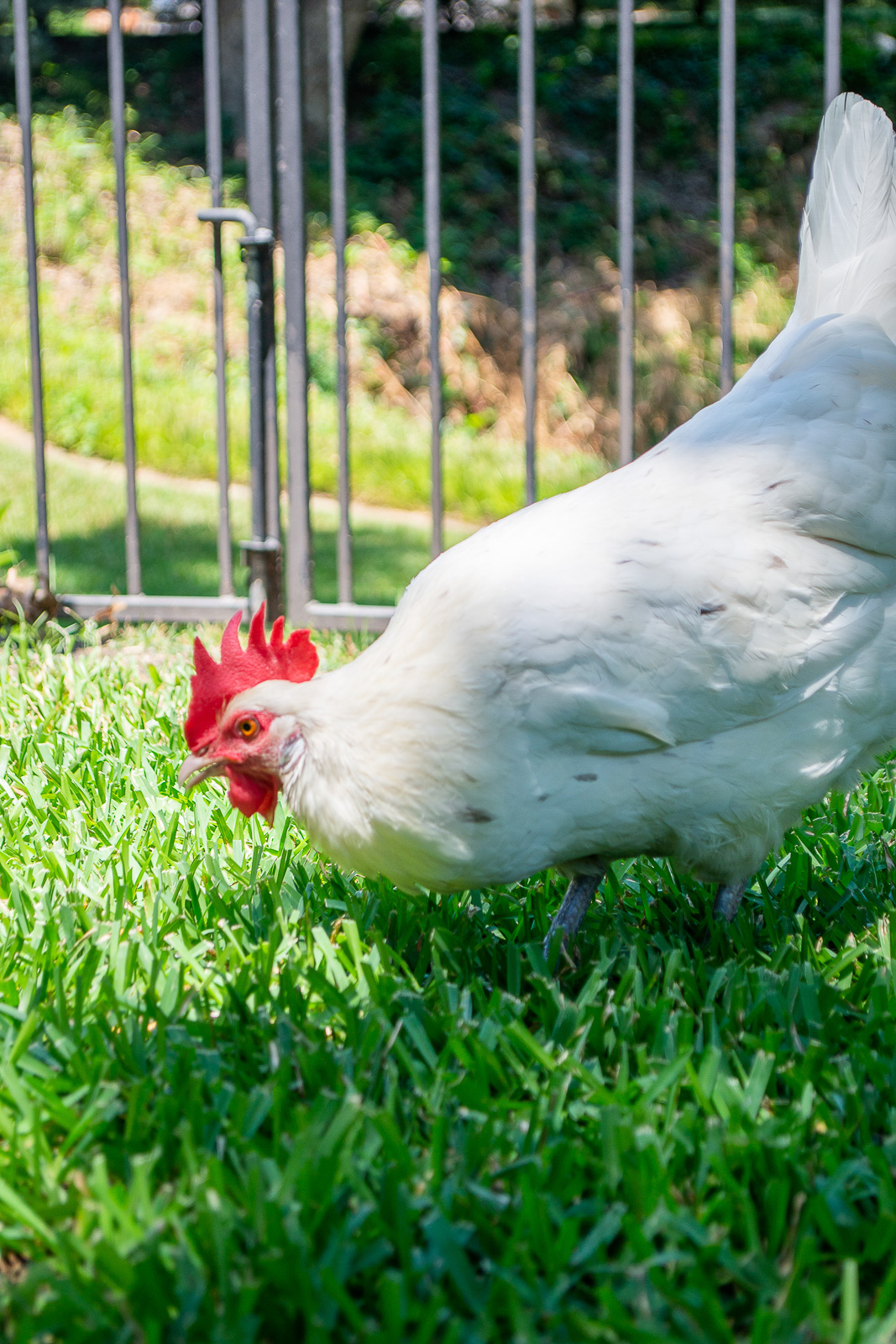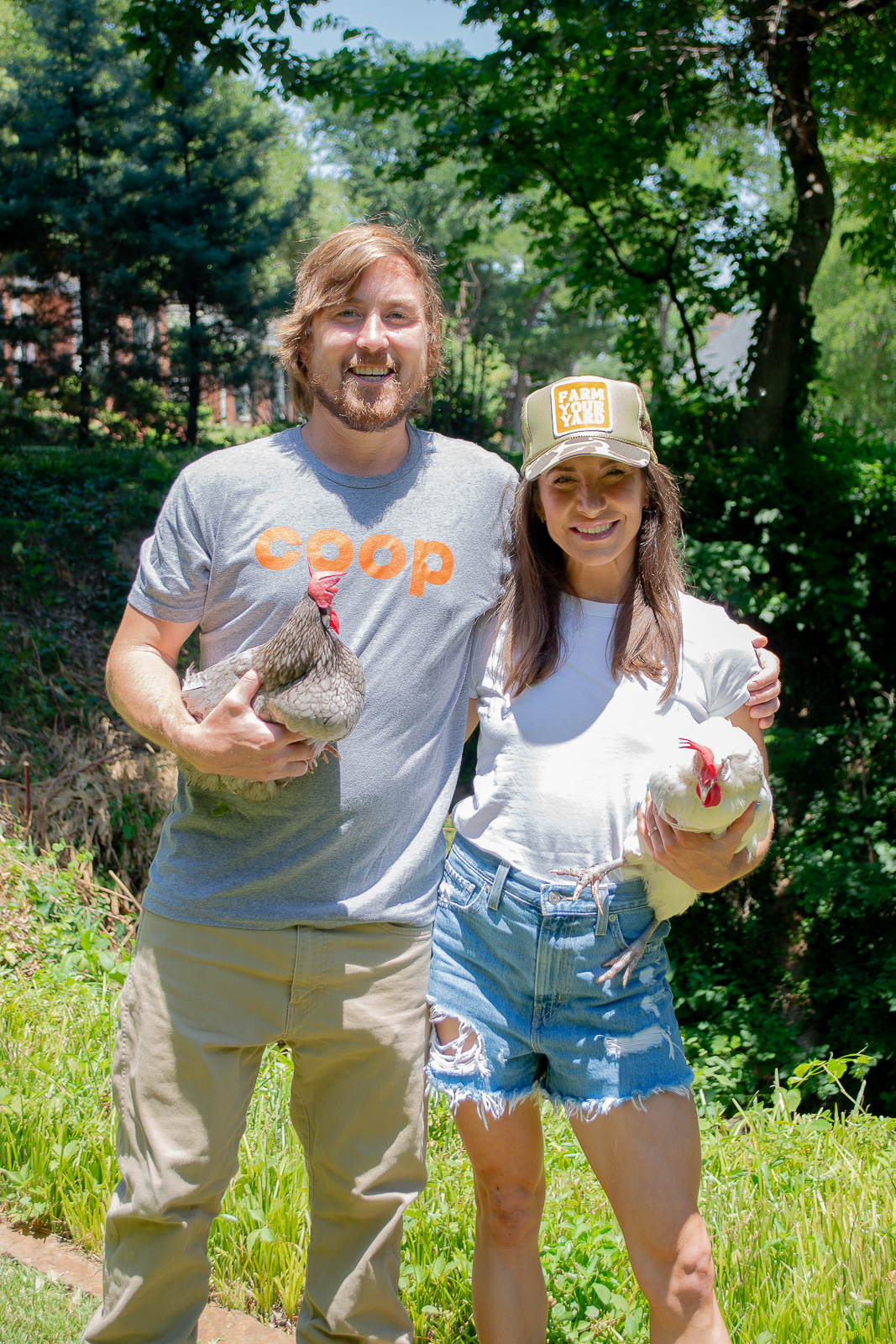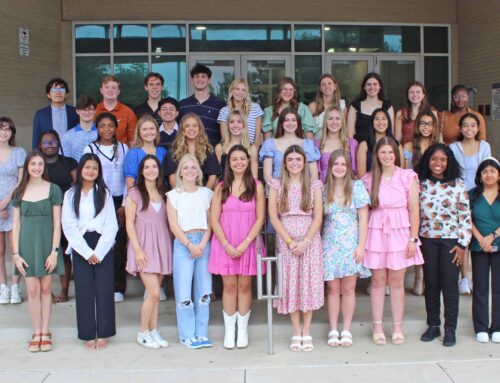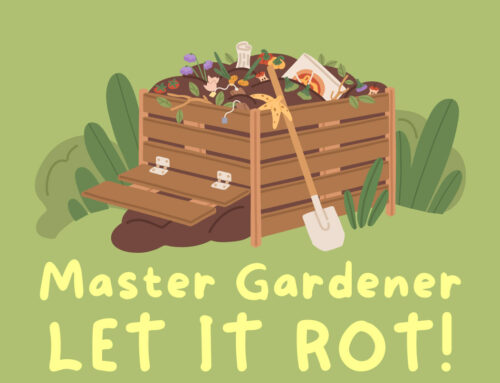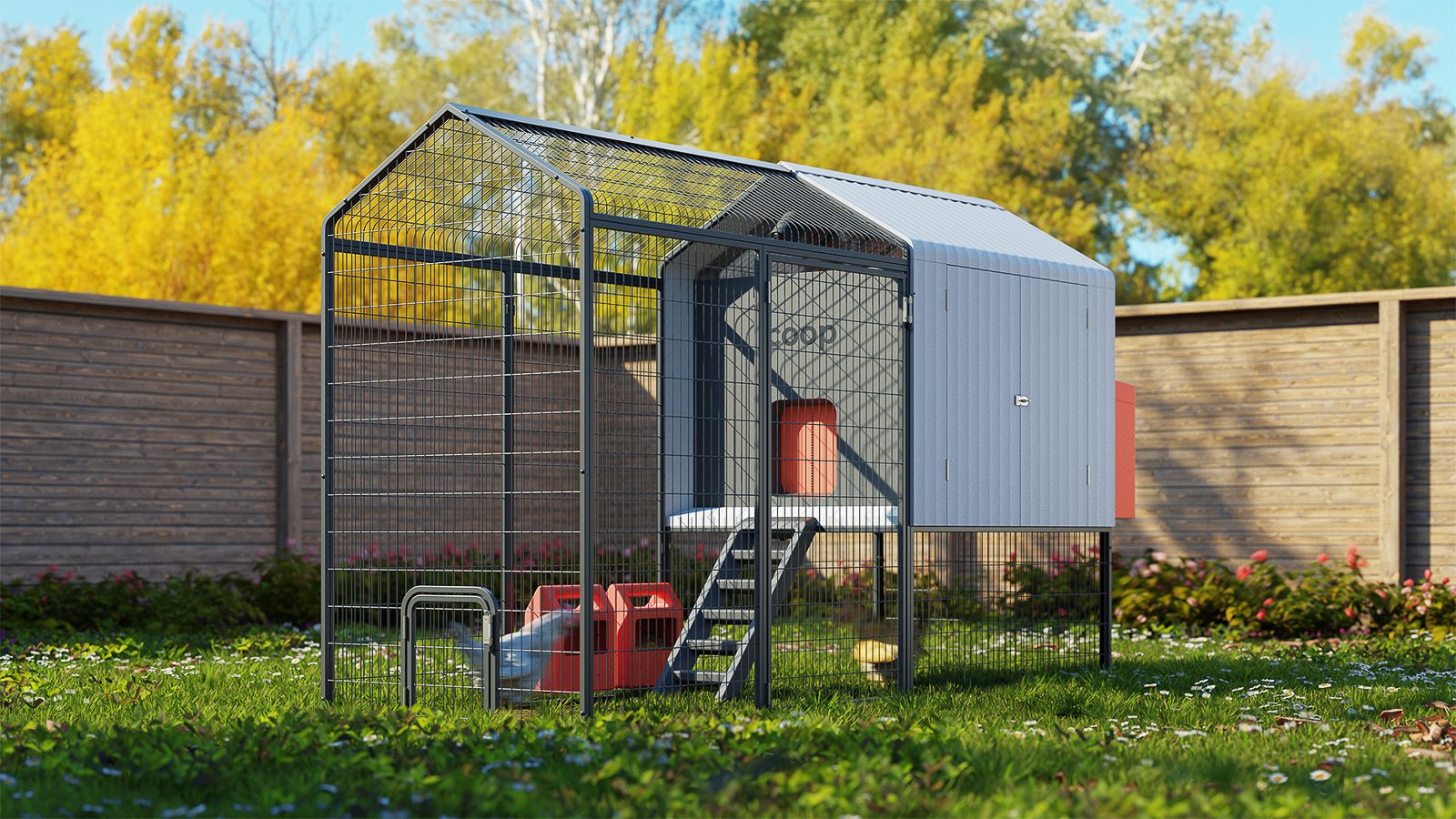
AJ Forsythe stumbled into raising chickens as a college student in California. Walking through a meat market and seeing chickens for sale, he bought three for $15. After an eight-hour train ride from Los Angeles to San Luis Obispo, Forsythe and his new pets arrived at his apartment.
He did not know what to do with them.
“I let them go in my apartment complex, and then built them a little coop from a dresser that I bought on Craigslist,” he says. “And then my apartment complex loved the chickens, and everyone had fresh eggs. It was awesome.”
Forsythe had officially been converted to a “crazy chicken person,” and he never looked back. Raising chickens has become a lifestyle for him. When Snowvid-21 hit Texas, he knew his chickens were at risk.
Leaving his winter vacation in Colorado behind, Forsythe recruited longtime friend and fellow vacationer and Lake Highlands native Jordan Barnes to travel back to Texas with him.
“No one was trying to get to Texas, except for us,” Barnes says.
After a flight to Dallas and a five-hour, $700 Uber ride to Austin, Forsythe made it back to his chickens and started brainstorming. If Planes, Trains and Automobiles was a movie about chickens, it would be about Forsythe and Barnes, the founders of Coop.
Backyard chickens are on the up and up. Your neighbors have them, your mom’s book club friend has them, the store down the street sells them. But many people see chickens as animals rather than pets. Taking care of them isn’t the same as taking care of a dog or cat — or is it?
Great egg-spectations
The pet supply market is huge, with products for dogs, cats, turtles — you name it. But nothing like Coop has been developed for chicken lovers.
“There’s just this whole underbelly of chicken people that until you have chickens you don’t really know is there,” Barnes says.
With many people becoming chicken curious, the demand for products and services is on the rise, creating a perfect market opening for Barnes and Forsythe and allowing them to meet the needs of chicken lovers like them.
At their HQ in Austin, the pair has about 30 chickens, each with their own personality and lifestyle. And Barnes and Forsythe have adapted their lifestyles to their chickens, too.
“It was a really hot day, so I built them a kiddie pool, and I filled it all up, and then I put ice in it. I was like, ‘One day you’re normal, and the other day you’re filling up a kiddie pool for your chickens,’” Barnes says.
Coop loves Chicken Tenders
Coop started as a service. After thinking through the chaos of Snowvid, Barnes and Forsythe knew there had to be a better way to ensure chickens were well cared for while their owners were gone. As they started developing prototypes for their high-tech chicken coop, Barnes launched the service side of their business.
“I threw up the first ads on Craigslist in Austin and Dallas looking for the supply side — for people who wanted to do the services,” Barnes says. “And I think the first night like 75 people applied in each city. People were like, ‘I would have done this for free. If I can make money doing this, this is incredible.’”
The servicers were ready. With her background in tech development, Barnes was able to vet and background check those who applied to be Tenders: people who can check on your chickens, refresh your coop and collect eggs while you’re not home. The business currently has 100 Tenders in 15 cities across the country.
“It wasn’t intended to be its own business. It just sort of kept growing,” Barnes says.
With the official Smart Coops rolling off the trucks in August, the company combined the physical chicken coop side of their business with the service side through their app, Albert Eggstein.
Flock from afar
Through Albert Eggstein, Smart Coop users have access to their chicken coop no matter where they are. Subscribers can view Tender profiles, read Tender reviews, book services and view their Smart Coop live feed all within the app.
“We’ve designed our coop to be very low-maintenance, and we patented these poop trays. So you’re looking at the patent holders of the first poop tray in America — well, patent [pending],” Barnes says, laughing.
The Smart Coops are made with the same molding technology as Yeti coolers, making them sturdy and weather-proof. With an elevated base, steel caging and interior and exterior cameras, Smart Coop is nearly indestructible: cool in the summer, warm in the winter and chicken safety heaven.
“We’re trying to keep our chickens safe, so it needs to be the safest cage in the world,” Forsythe says.
With their chicken-based innovations, Barnes and Forsythe are confident their Smart Coops will benefit the chicken community.
“We want to build a system that anyone with a backyard and a desire to raise chickens would be able to, and so what we’re doing is building a ton of technology that makes it feel effortless,” Forsythe says.
The big peck-ture
So, why raise chickens? Sure, fresh eggs are nice, but what’s the kicker?
“The average egg in a grocery store is about 45 days old,” Forsythe says. “The USDA mandates egg cartons to print a three digit code that is one to 365 for the day of the year that the egg was handed from the farm to the distributor — not the day it’s laid. And the farm has 30 days to hand it from the time it was laid to the distributor.”
“It’s not rotten, but it is going through a degradation process,” Barnes says.
With the way commercial food systems work, most eggs travel miles before reaching their final destination which means they have to be refrigerated and processed for traveling. Fresh eggs, on the other hand, can be stored on the counter and washed before use, bypassing the chemicals used by large agricultural companies.
“Right now, the average American family is throwing away around $2,000 of edible food a year, which is about 250 to 300 pounds of food that is perfectly good,” Forsythe says. “When you have chickens, like 95% of that goes right to the chickens in terms of into [the] eggs.”
That’s right: Much of the food thrown out can be given to chickens. A common misconception is that chickens are vegetarians, but they’re actually omnivores. Of course, moldy leftovers from Thanksgiving aren’t OK, but good food that you may not want to eat anymore can be used as egg-laying nutrition.
Food waste solution? Check. Fresher and more nutrient-dense eggs? Check.
Fowl language
What goes in must eventually come out, and chickens don’t only lay eggs — they poop, too. That’s why Coop strongly believes “chicken shit needs a rebrand.”
“Chicken shit is some of the best nutrient-dense manure you can use for fertilization,” Forsythe says.
And with the patent-pending trays Coop is designing, it’ll be easier than ever to clean your coop and compost the waste for your yard.
“It’s a very real, everyday system that’s happening, and then your yard looks incredible,” Barnes says.
Once your backyard ecosystem is established, the Smart Coop and its inhabitants function as an fairly independent ecosystem — one that can feed a family with ease.
“The average chicken lays about 250 to 270 eggs a year. The average American right now eats about 290 eggs a year. So it’s about one chicken for every person,” Forsythe says. “The coops are designed for four to six hens. And so four to six hens are designed to put off about 100 to 100 dozen eggs a year.”
Get chicken crazy
As a startup, Coop is still a very hands-on business, with Barnes and Forsythe doing chicken coop cleanings for clients when other Tenders aren’t available. They know firsthand that the cleaning side of owning chickens can be off-putting — Barnes’ first deep clean took her four hours.
But that’s where Coop comes in. Currently 56% of Smart Coop orders have been placed by people who haven’t raised chickens previously.
“The goal is to get people that we call ‘chicken curious’ — how do we get people that are ‘chicken curious’ to be comfortable raising chickens?” Forsythe says. “There’s a very good chance you can raise chickens if you think you can’t.”
Barnes and Forsythe weren’t raised to be chicken people — they became chicken people. Now they’re ready to enable the next generation of backyard chicken lovers.
“This is truly powering a complete, sustainable ecosystem in your backyard,” Barnes says.
Forget farm-to-table, Barnes and Forsythe think it’s time for backyard-to-table to become a reality. And the first step in making that a reality is to become chicken crazy.

